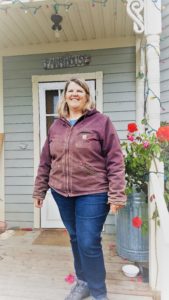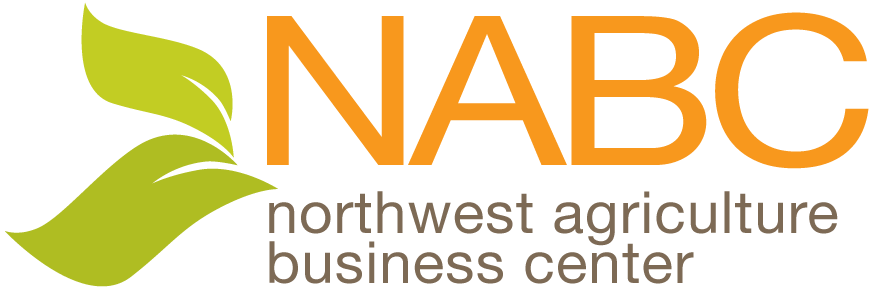City Girl Goes Rural
By Sera Hartman, NABC Project Manager

Sixteen years ago, Joan Schleh had had enough of trying to cram urban fresh air fun sufficient for three kids into the family’s tiny Ballard back yard. Friends in Mount Vernon told them about a pretty farmhouse for sale on a couple of acres up in their Skagit Valley neighborhood. That suited Joan’s longing for the country life, so the family packed up and headed north.
Within two weeks, those same friends asked the rural newcomers if they’d be willing to farm-sit goats and other livestock while they headed off for vacation. Joan and the kids agreed, diligently learning to milk and perform all manner of basic farm chores just in time to temporarily take over the reins of the operation. Far from an epic disaster, the family dived into the adventure whole-heartedly. It wasn’t long after when the Schlehs had chickens and milk goats of their own, and their Garden Home Farm was launched. Daughter Elizabeth pursued the goat hobby with enthusiasm, showing and breeding their Sanaan herd, with support from her brother Daniel. Mom Joan found the milking to be a source of relaxation.
Five years passed, and by then the family had built connections throughout the local community. One such contact was Hemlock Highlands in Sedro Woolley, of which the Schlehs were a regular beef customer. One day, owner John Bates invited the family to volunteer at his cattle display during the Festival of Family Farms. John asked Joan’s son Ian to hold the bottle for a Highland calf cow – it was instant love. Soon the family had bought a cow of their own, followed by another, and then another. The Schlehs shortly leased a 15-acre plot next to the homestead, and in time developed a breeding Scottish Highland herd, with Ian as the driving force.
Joan finds that the Scottish Highland breed is easy to work, providing you understand them. “Think of them like water,” she says, “Once that force starts to move in a direction, it will continue to move. Happy cows stay put.” She pointed out that any weakness in a fence will be exploited, and once the herd of strong determined animals decides to go through, there’s not much one can do to can stem the tide. Joan and her boys have learned some management tricks to keep their animals content and the structures intact, like automatic waterers to ensure uninterrupted water access, hot wire around the stored round bales to prevent snacking, shoring up temporary shelters with wooden poles against wind and rubbing, and the value of a stout fence charger – strategies that solved or prevented frustration and calamity.
At present, the Schlehs own 19 Scottish Highland cattle, and sell animals for beef, breeding, and showing. Joan recommends Highlands not just for the experienced cattle owner but also for the novice cowherd; they are docile, and smaller than the average beef cow. The meat is prized and commands a profitable margin. Joan credits the Northwest Highland Cattle Association for helping to establish and build the family enterprise.
In addition to raising home-schooled kids, cattle and goats, Joan experimented with cheesemaking, using milk from the family’s goat herd. After experimenting for a few years, Joan got serious about the craft and began doing research and pursuing educational opportunities. Joan’s passion has led to the farm heading towards certifying as a Grade A dairy so the Schlehs will be able to sell their artisan cheeses. Ian and Daniel even plan to develop a cheese business together.
The farm may be growing, but the house population is getting smaller. Still co-owner of the goat herd with Daniel, Elizabeth is married and currently enrolled at Bastyr University to earn her Masters degree as a dietician to compliment her farmstead experiences. Daniel headed to Idaho University to major in agri-business. Ian graduated with a degree in business from Trinity Western School of Business, and will be headed off shortly to nurture his career path. The farmstead won’t be short of help though – Joan recently brought on board the newest 4-H intern, a 15-year old girl, and will pass on lessons learned on her journey from city girl to farm girl.
